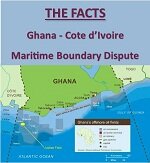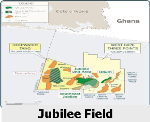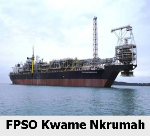Cote d’Ivoire wants oil operations on TEN Project suspended
- Details
- Created on Monday, 02 March 2015 14:25
Neigbouring Cote d’Ivoire has requested the International Tribunal of the Law of the Sea (ITLOS) in Hamburg to order Ghana to suspend ongoing exploration and exploitation works in the Tweneboah-Enyera-Ntoumme (TEN) Project until the tribunal delivers its verdict on the maritime boundary dispute currently before it.
The verdict, which will be delivered by a special chamber of the ITLOS, is expected in 2017 and should bring to rest agitations by the two countries on who owns portions of the oil and gas-rich Cape Three Points, off the shores of the Western Region.
Should Cote d’Ivoire’s application to ITLOS, which was confirmed by Tullow Oil Plc, the operator of the TEN Project, be upheld, ongoing works, including the monies invested into the project, will be suspended for the next two years. That will happen if the Ghana government fails to convince the tribunal to allow work on the oil-rich area to progress while the arbitration process continues.
It will also mean that Ghana’s dream of drilling first oil from the TEN Project in mid-2016 will be truncated and that will have negative financial implications on government revenues while throwing the plans of the project’s partners off guard.
A Plan of Development (PoD) of the project, which was approved by government in May 2013, showed that the development process will cost some US$4.9 billion of which about half of it has already been invested into the development process.
The Chief Executive Officer of Tullow Oil Plc, Mr Aidan Heavey, said in a press release copied to the Graphiconline that it was in the interest of both Ghana and Cote d’Ivoire to allow work on the TEN Project to move ahead while the arbitration process at the ITLOS continues.
“Tullow has long had interests in and strong relationships with both Ghana and Côte d'Ivoire and we have conducted our operations in both countries in line with our obligations as a contractor under our Petroleum Agreements and in accordance with international operating standards,” Mr Heavey said.
source: graphic online






